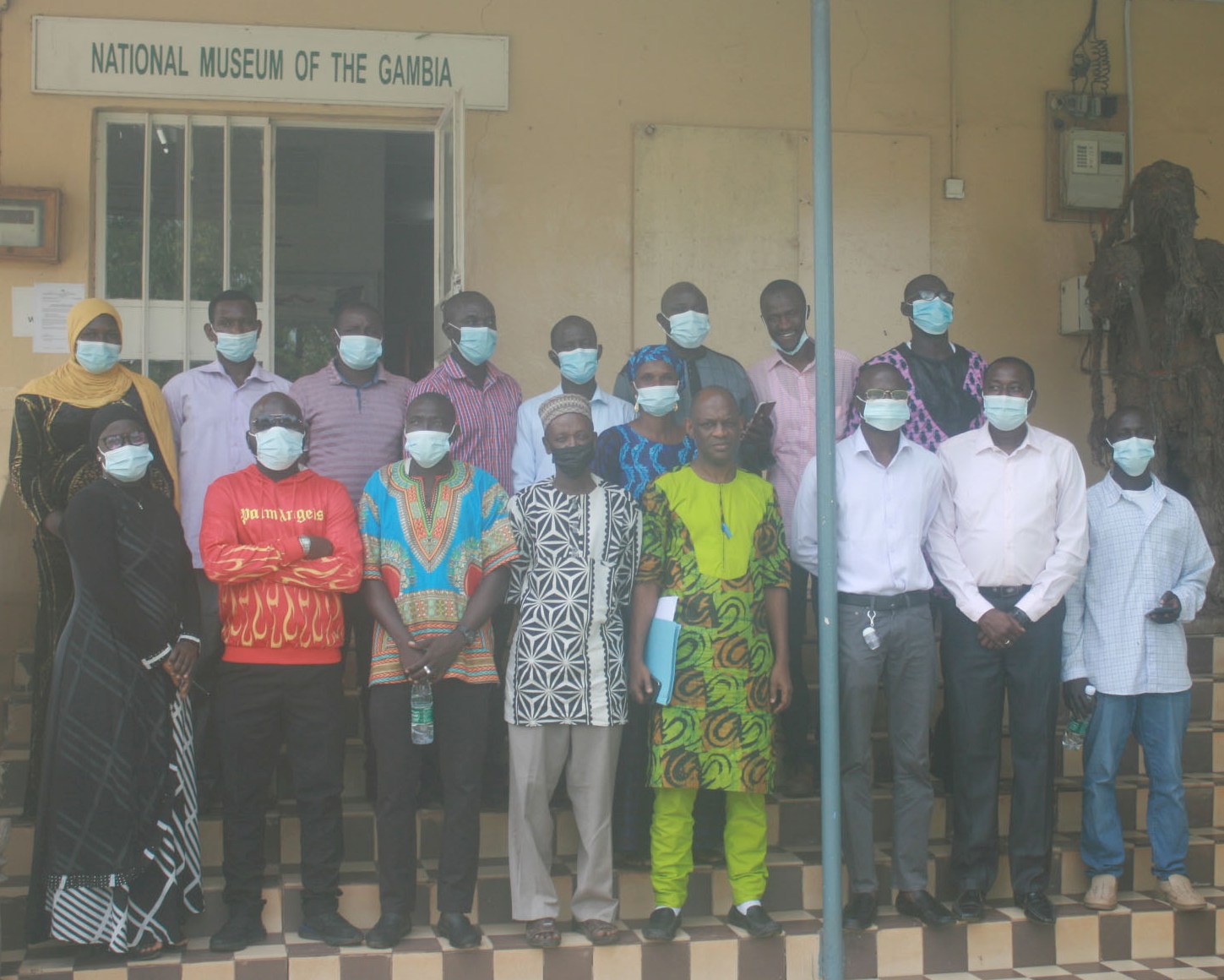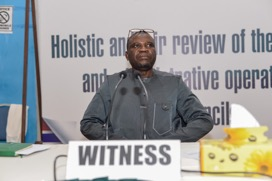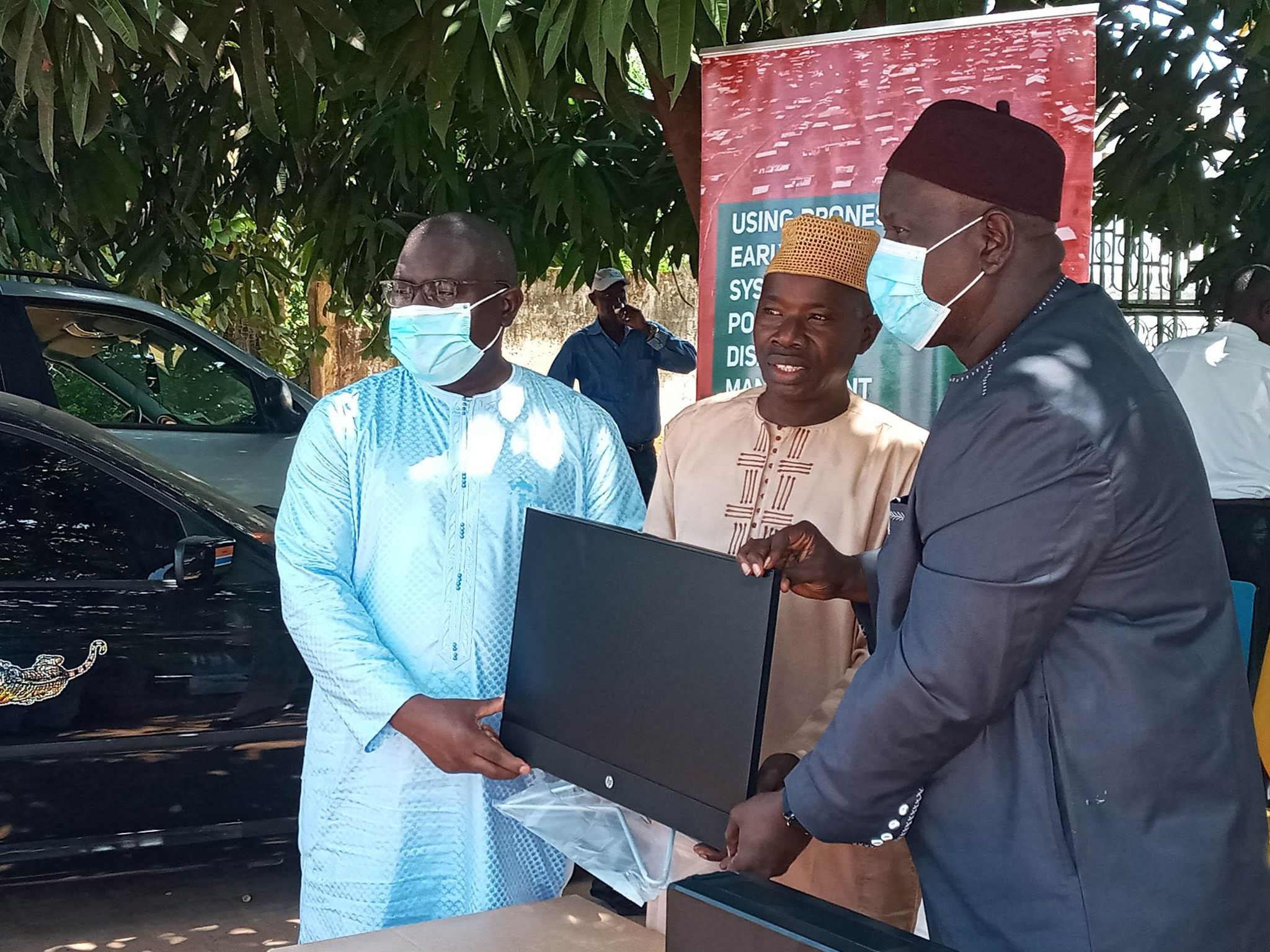By Yunus S Saliu
After a two-week of intensive research on role of culture in disasters risk reduction and environmental conservation, the National Centre for Arts and Culture (NCAC) in collaboration with the National Commission for UNESCO The Gambia and other stakeholders, Monday, validated the Intangible Cultural Heritages (ICH) Research and Documentation Division (RDD) report.
The research was cantered on how culture can assist in mitigating, managing natural resources and disaster risk reduction through cultural practices as regarding rituals and religious beliefs and how it can contribute to strengthening the social capital which can help communities build resilience against manmade and natural disasters which include climate change and pandemic such as Covid-19.
Hassoum Ceesay, Director General of National Centre for Arts and Culture (NCAC) disclosed that the project was funded by the UNESCO Intangible Heritage Section while he commended the team of the researchers which comprised Research and Documentation Division (RDD) of NCAC; officials of Parks and Wildlife; Community Development; National Disasters Management Agency (NDMA) and Curriculum Research, Evaluation and Development Directorate (CREDD) for a job well done.
The director general disclosed that the research was carried out in two areas – Kiang West National Park and Baobolong Wetland Reserve; “and what we want is to make culture and heritage relevant to burning issues of the day namely: Covid-19 pandemic and natural disasters like wind and rain storms which have caused lots of damages in the country.”
Also, he added, how heritage culture can help to make communities better able to withstand these natural disasters by using cultural knowledge to mitigate and lessen the impact.
DG Ceesay disclosed that the team “has come up with six ideas which can help to withstand natural and manmade disasters from the two areas – Kiang West National Park and Baobolong Wetland Reserve. This include ‘Jidaano and korondo’ (rain rituals), traditional medicines whereby some certain herbs were identified for some sicknesses, the use of the olden days architecture, fishing techniques, salt mining,” among others.
According to him, after the validation, the report will be shared with the Ministry of Basic and Secondary Education (MoBSE) for consideration and possible inclusion in school curriculum “so that students will start learning how to protect themselves and their communities from the natural and manmade disasters.”
However, Hassoum Ceesay described it as an important project that will help show that heritage is part of national development and “heritage and culture are developmental, as we can use heritage to answer questions of today – Coronavirus pandemic and windstorms.”
He therefore thanked all partners involved in the project for their assistance, the visited communities, UNESCO Intangible Heritage Section, National Commission for UNESCO The Gambia and Ministry of Basic and Secondary Education (MoBSE) and the Ministry of Tourism and Culture together with the team of the researchers for a job well done.
Lamin Jarjou, Senior Programm Officer at National Commission for UNESCO The Gambia said the Natcom-UNESCO is a strategy partner to the NCAC as UNESCO do a lot with culture.
He disclosed that Kiang West National Park is a natural heritage when it comes to cultural heritage aspect “falling under the natural heritage part.”
The Gambia, he said, depends a lot on tourism in term of foreign exchange taking into consideration its contribution to the country’s GDP “but covid-19 pandemic has wrecked havoc on the sector and we all know it has a lot of changes on the country’s economy.”
So community that lives around the national parks obviously will be directly affected by none coming of tourists to the centre, he stated.
Relating natural heritage to disaster management, Mr Jarjou said it is significant and very important thus aware that all communities and society have what they called “traditional knowledge used to build their resilience to disaster happening around them.”
The Senior Program Officer therefore expressed delights about the NCAC research team interaction with both men and women of the communities visited at the course of the research, as ICH needs to capture, respect and preserve for prosperity.
On behalf of the Secretary General National Commission for UNESCO The Gambia he again commended and thanked the NCAC and by extension participants and the research teams that make it a worthwhile project.
Sheik Omar Jallow Director of Literature Performing and Fine Arts; Lamin Sanyang of Parks and Wildlife; Micheal Hamadi Secka of CREDD among other made remarks at the opening of the validation program, while Siaka Fadera Senior Researcher, Sanna B Jarju, Researcher, Jarata Mahmou, Audiovisual Technician made presentation 3 ICH elements from KWNP; 3 ICH elements from Baobolong Wetland Reserve Area and Validation of Visual Images respectively.




